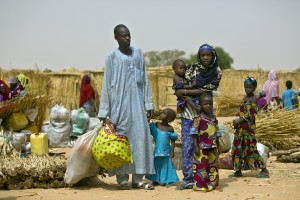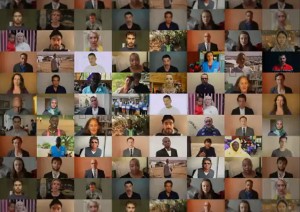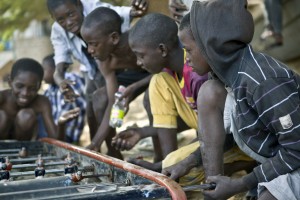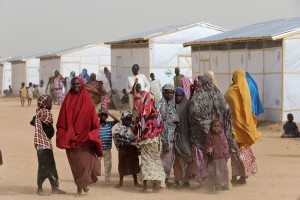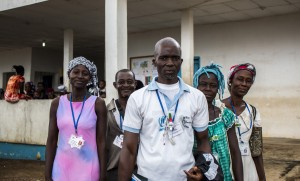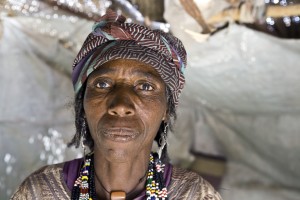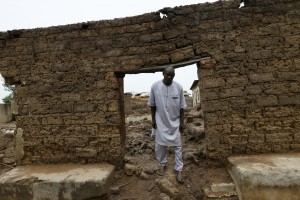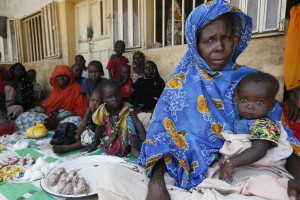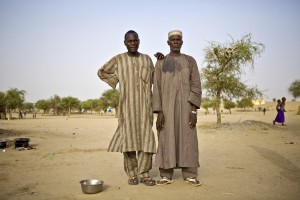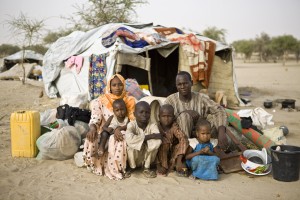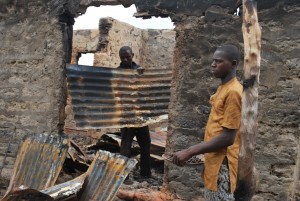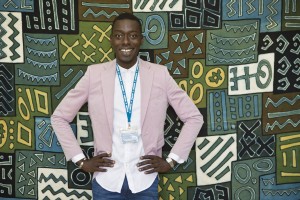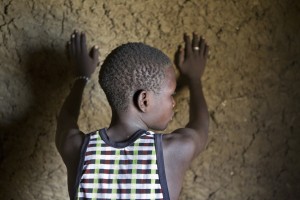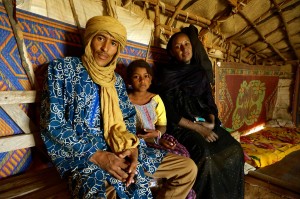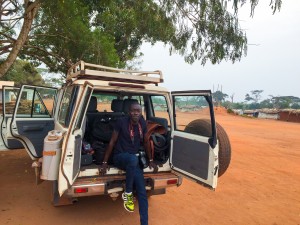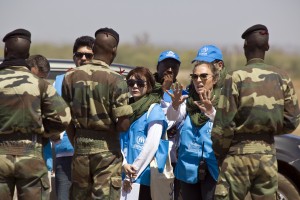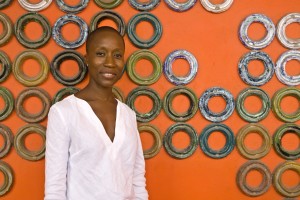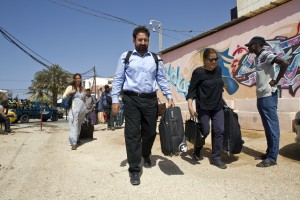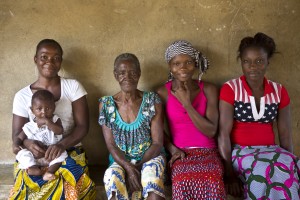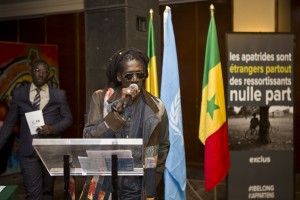Workshop teaches Tuareg artisans new skills in exile
A hands-on workshop in Burkina Faso is helping Malian refugees to develop new products and the business skills to tap international markets
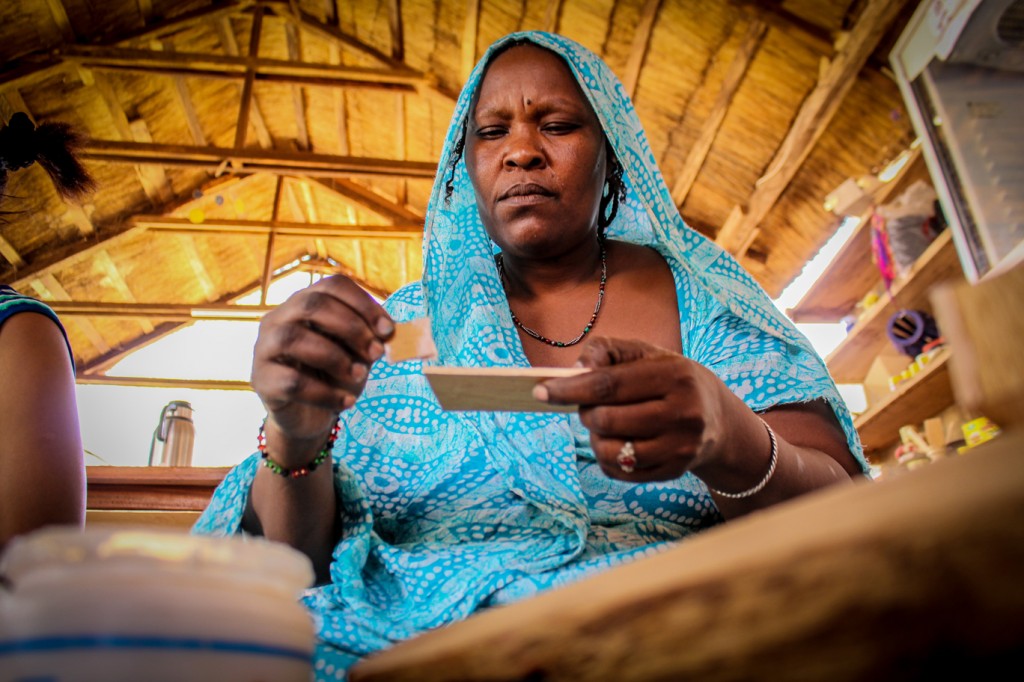 UNHCR / PAUL ABSALON
UNHCR / PAUL ABSALONA Malian refugee woman learns to design and make quality products at a workshop in Ougadougou, Burkina Faso
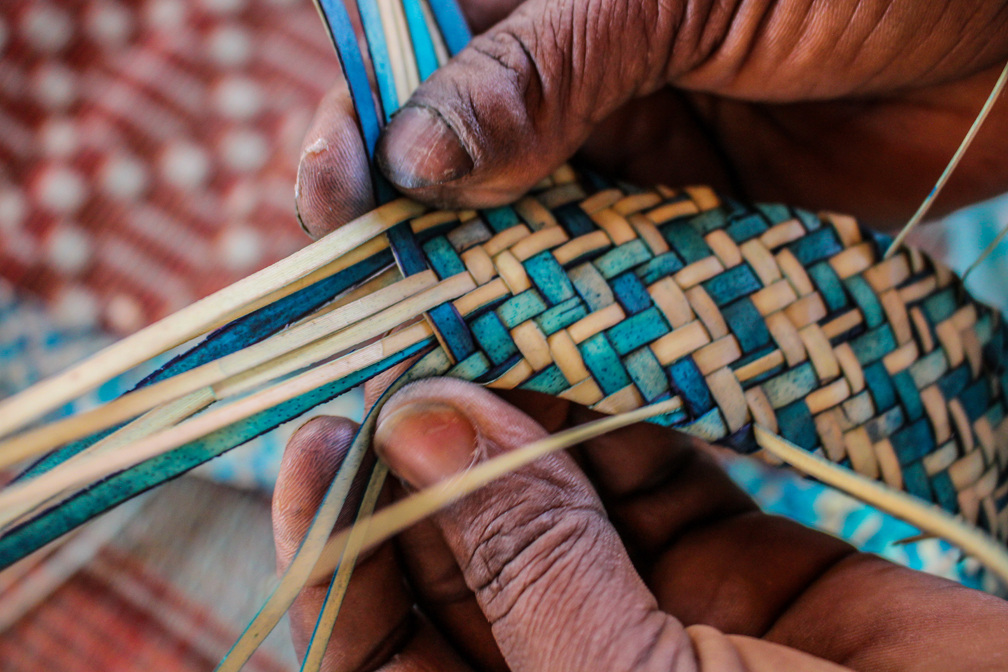
A Malian refugee artisan weaves a palm mat at the workshop. UNHCR / Paul Absalon
OUAGADOUGOU, BURKINA FASO, (UNHCR) – Taking a sheaf of palm fronds in her hand, Tuareg artisan Bintou starts to weave a decorative mat to be fixed on a newly designed desk lamp that may one day light up homes in Europe and elsewhere. An accomplished leather worker back home in Mali, she is among some 20 refugees learning new skills at a residential workshop in neighbouring Burkina Faso that aims to help them develop their traditional products and market them abroad.
“Now I have learned how I can transpose my know-how from leather to palm,” she says with a smile. “I don’t know yet what will be the final product, but at this stage I am happy to know how to work with a new material,” she adds. Originally from a village close to Kidal in northeast Mali, the 40-year-old mother-of-four fled after her community was caught up in the conflict in 2012. She is now among 144,765 Malian refugees living in exile, 38,844 of them in Burkina Faso. She took part in the seven-week residential workshop in Ougadougou, organized by French social enterprise Afrika Tiss and supported by UNHCR. Ten French designers worked with the refugee artisans to develop new products, using traditional materials including palm, wood, leather, metal and fabric.
In coming months, the program aims to train 200 artisans to make high-quality handmade products, incorporating the bright, bold, and colourful new designs. The artisans will also be taught “productive, business and entrepreneurial techniques that will take into account their traditional way of life,” said Afrika Tiss president Mariette Chapel.
The UN Refugee Agency is currently identifying global retailers who are interested in sourcing handmade products. It is hoped that the knowhow the artisans acquire will be valuable to them both in Burkina Faso and in Mali, whenever they are able to return home. The project’s benefits are already being recognized by some, including Tuareg artisan and refugee Moctar Ag Abdoulaye. “It’s good to work with UNHCR because they give us good ideas on what to do,” said Ag Abdoulaye, who makes camel skin boxes with geometrical-patterned fabric linings that he hopes to sell abroad. “They try to find partners interested in our products.”
While exploiting her talent in an innovative way, Bintou, meanwhile, dreams about a better future for her family. “I am eager to further improve my technical and entrepreneurial skills so that my products be exported to international markets,” she says adamantly. “When I left Mali, the only personal belongings I brought with me were my practical knowledge and my hands. I want to make the most of this luggage: I want to ensure I can pay for my children to continue to go to school until they can get decent jobs. I want them to enjoy a safer life than mine.”
The products developed by the artisans during this workshop will be on display for the exhibition Transhumance, at the Institut français, from 4 June to 23 July.
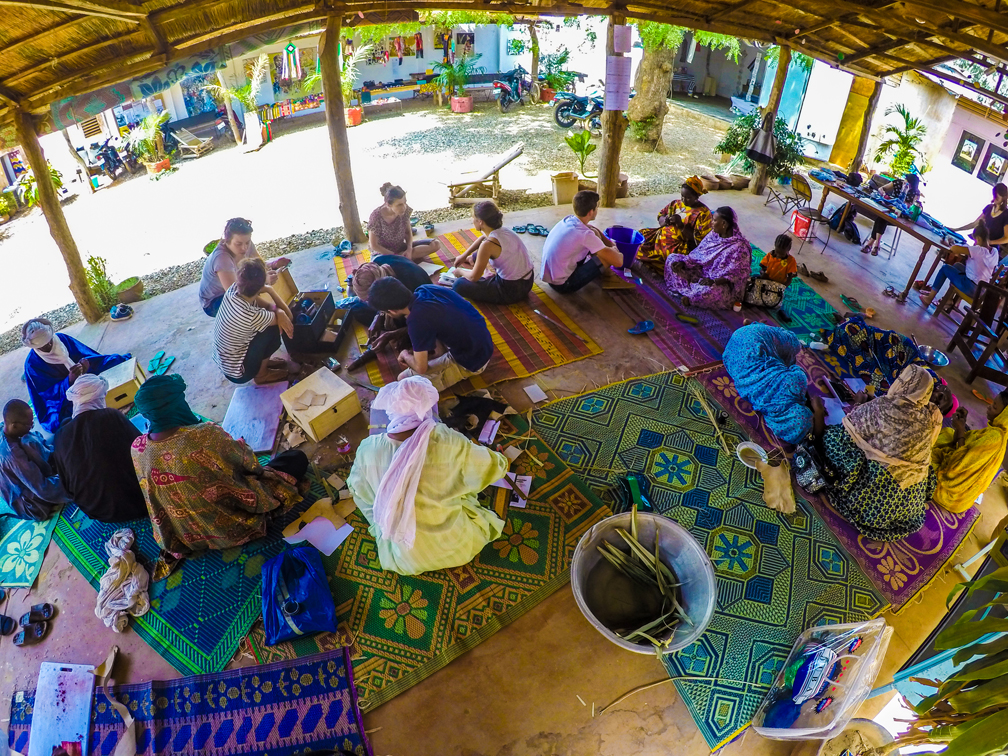
The seven-week residential workshop in Ouagadougou was organized by French social enterprise Afrika Tiss and supported by UNHCR. Ten French designers worked with the Malian refugee artisans to develop various products. UNHCR / Paul Absalon
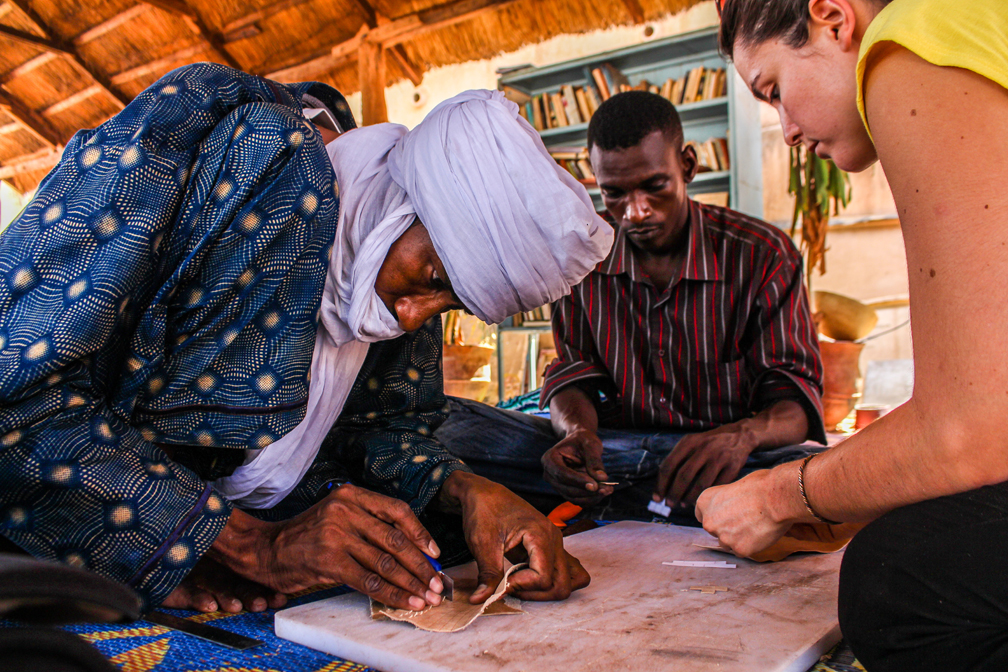
The program aims to train some 200 refugee artisans to make high-quality handmade products. UNHCR / Paul Absalon
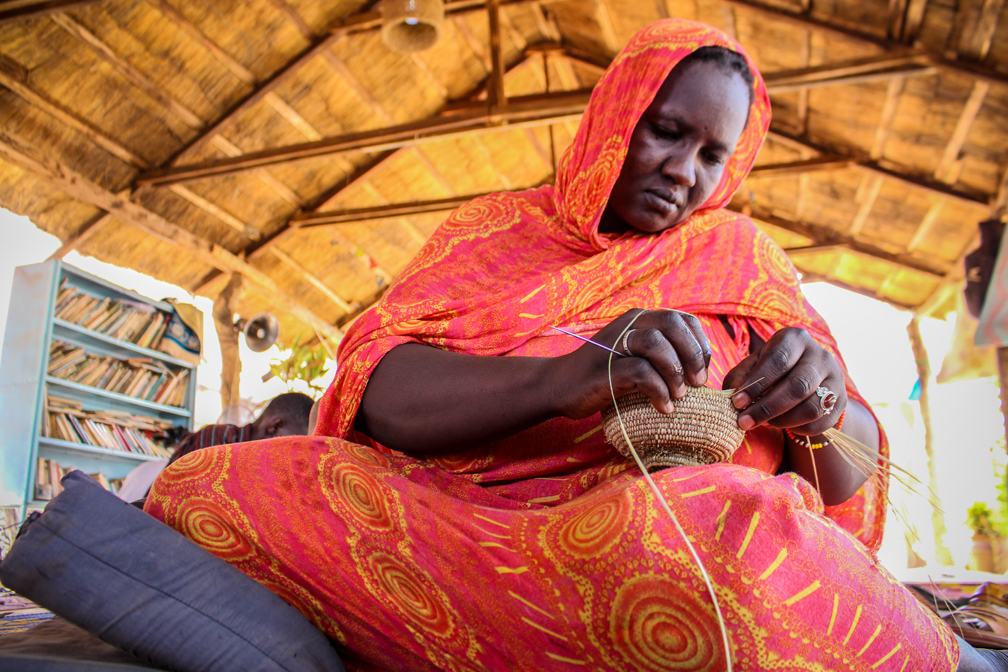
During the workshop, the refugees improve their technical and entrepreneurial skills, with the hope that their products be exported to international markets. UNHCR / Paul Absalon
Le texte en français:
Les réfugiés maliens au Burkina Faso expriment leur identité culturelle avec innovation et créativité
Une formation de sept semaines a permis aux Touaregs de developper de nouveaux talents artisanaux
Après quatre années d'exil au Burkina Faso, les artisans réfugiés maliens utilisent leur savoir-faire traditionnel pour reconstruire leurs vies. A Ouagadougou, ils explorent avec des designers français des techniques modernes et de nouvelles façons d'exprimer leur identité culturelle. A travers cette collaboration, ils conçoivent et fabriquent des produits innovants et de quality qu'ils espèrent pouvoir vendre sur le marché international du commerce équitable. Pour voir la vidéo en français : https://www.youtube.com/watch?v=5oI-YmNZ_54
